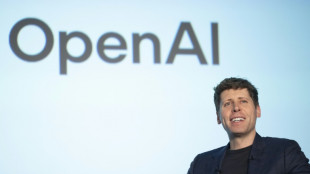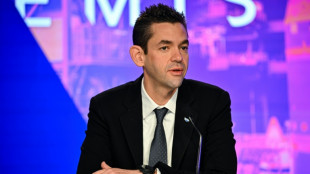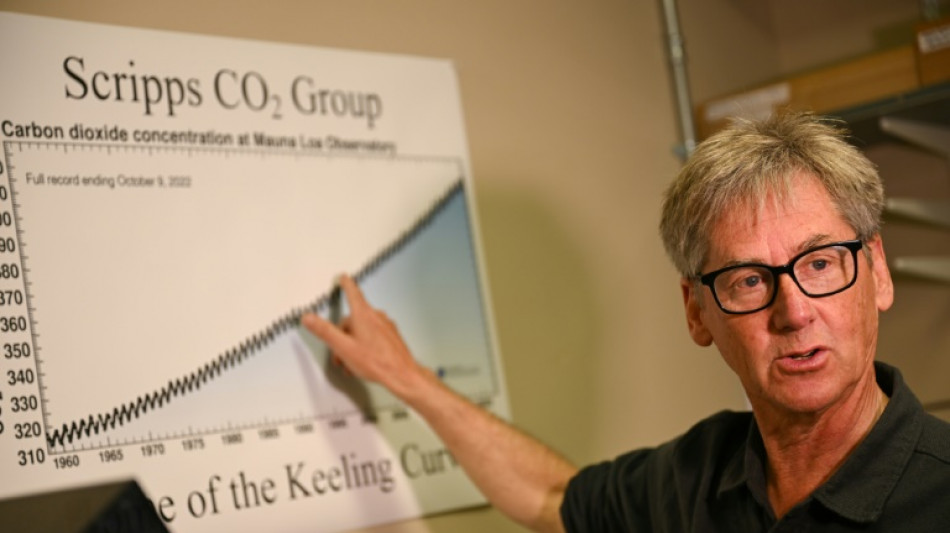
-
 'A terrible day,' says Israel community shaken by deadly Iranian strike
'A terrible day,' says Israel community shaken by deadly Iranian strike
-
Arsenal corner Chelsea into submission, Man Utd climb to third

-
 Arsenal win set-piece battle to sink Chelsea in title boost
Arsenal win set-piece battle to sink Chelsea in title boost
-
What future for Iranian leadership after Khamenei's death?

-
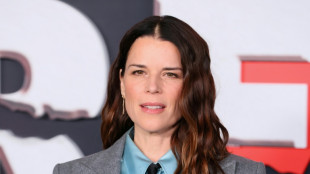 'Scream 7' makes a killing at N. America box office
'Scream 7' makes a killing at N. America box office
-
Thousands stranded as Iran conflict shuts Mideast hubs
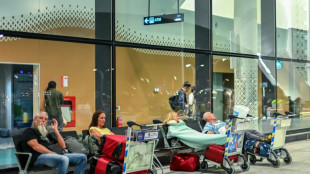
-
 Samson's 97 puts India into T20 World Cup semi-final against England
Samson's 97 puts India into T20 World Cup semi-final against England
-
Latest developments as Iran retaliates to US-Israel strikes that killed Khamenei

-
 Spurs have 'big problems' says Tudor as relegation risk persists
Spurs have 'big problems' says Tudor as relegation risk persists
-
Dortmund captain Can out for season with ACL tear

-
 Leweling doubles up as Stuttgart sink sorry Wolfsburg
Leweling doubles up as Stuttgart sink sorry Wolfsburg
-
Man Utd climb to third, Fulham sink sorry Spurs
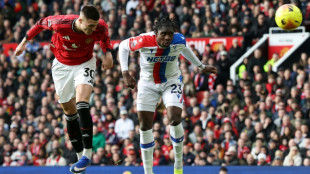
-
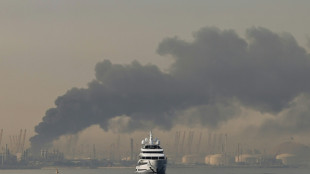 Iran strikes send VIP Dubai influencers 'back to reality'
Iran strikes send VIP Dubai influencers 'back to reality'
-
Briton Brennan bursts to Kuurne-Bruxelles-Kuurne triumph

-
 Activists pressure Milan Fashion Week to go fully fur-free
Activists pressure Milan Fashion Week to go fully fur-free
-
Blasts in Kabul as Afghan govt says responding to Pakistan attacks

-
 Iranians grieve, celebrate, worry after Khamenei's killing
Iranians grieve, celebrate, worry after Khamenei's killing
-
Latest developments as Iran lashes out after US-Israel strikes kill Khamenei
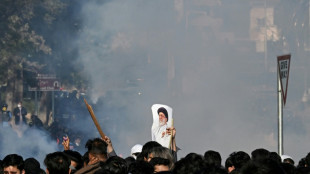
-
 West Indies post 195-4 against India in T20 World Cup do-or-die clash
West Indies post 195-4 against India in T20 World Cup do-or-die clash
-
South Africa 'embrace pressure' and favourites tag, says coach
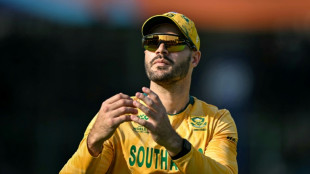
-
 Tel Aviv residents say ready to withstand more Iranian attacks
Tel Aviv residents say ready to withstand more Iranian attacks
-
Russia loses key ally leader as Putin slams Khamenei 'cynical' killing
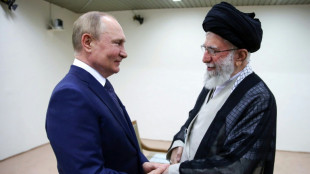
-
 AC Milan consolidate top-four credentials with win at Cremonese
AC Milan consolidate top-four credentials with win at Cremonese
-
Flights of fancy at Bottega Veneta, atmospheric mood at Armani in Milan

-
 Guardiola calls for respect after Ramadan break is booed
Guardiola calls for respect after Ramadan break is booed
-
Afghanistan warns Iran war will impact whole region

-
 Iran launches fresh strikes across Gulf after vowing revenge for slain leader
Iran launches fresh strikes across Gulf after vowing revenge for slain leader
-
OPEC+ hikes oil production by more than expected following outbreak of Iran war
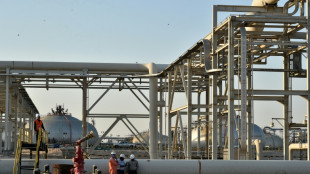
-
 Goggia tightens grip on World Cup super-G with victory in Andorra
Goggia tightens grip on World Cup super-G with victory in Andorra
-
Belgium seizes Russian 'shadow fleet' tanker
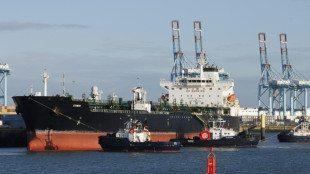
-
 Raza steers Zimbabwe to 153-7 against South Africa
Raza steers Zimbabwe to 153-7 against South Africa
-
Kerr on target as Australia make winning start to Women's Asian Cup

-
 Marquez says 'unlucky' to retire from MotoGP season opener
Marquez says 'unlucky' to retire from MotoGP season opener
-
9 killed in pro-Iran protest at US consulate in Pakistan's Karachi
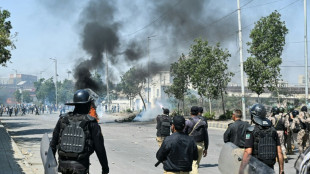
-
 Green clinches Singapore title with help from caddie husband
Green clinches Singapore title with help from caddie husband
-
More flights cancelled as Iran conflict shuts Mideast hubs

-
 'One Battle After Another' wins top producer award before Oscars
'One Battle After Another' wins top producer award before Oscars
-
Iran vows revenge for slain supreme leader despite Trump threat
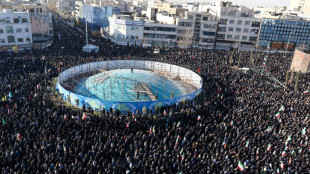
-
 Flights of fancy at Bottega Veneta with shimmering, tactile collection
Flights of fancy at Bottega Veneta with shimmering, tactile collection
-
World Cup marks 100-day countdown amid political upheaval

-
 Bezzecchi wins MotoGP opener as Marquez retires
Bezzecchi wins MotoGP opener as Marquez retires
-
Pro-Iran protesters try to storm US missions in Pakistan, Iraq

-
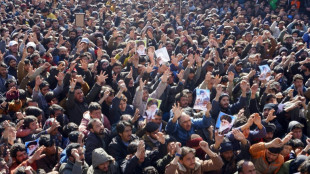 8 killed in pro-Iran protest at US consulate in Pakistan's Karachi
8 killed in pro-Iran protest at US consulate in Pakistan's Karachi
-
Latest developments after US, Israeli strikes kill Iran's Khamenei

-
 Before dawn, ancient drum rite wakes Istanbul faithful to fast
Before dawn, ancient drum rite wakes Istanbul faithful to fast
-
Music, mourning as Iran's Khamenei is killed
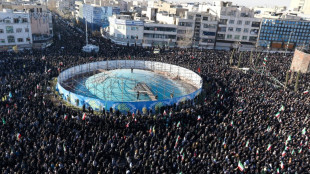
-
 Pakistan cricket's lack of T20 evolution exposed by World Cup exit
Pakistan cricket's lack of T20 evolution exposed by World Cup exit
-
Cobolli downs Tiafoe to claim Mexican Open

-
 Takele defends Tokyo Marathon title after sprint finish
Takele defends Tokyo Marathon title after sprint finish
-
Hollywood's finest gather for guild's Actor Awards
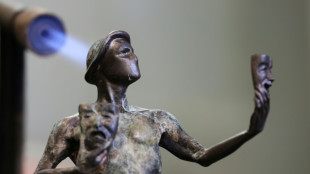

Climate watchers fret over Trump's cut to sciences
In his California laboratory, Ralph Keeling examines a graph created from data his father began collecting that keeps a record of the amount of carbon dioxide in the atmosphere.
After 67 years, the fate of this "major indicator of climate change" is uncertain under President Donald Trump's administration.
The United States "needs this information, there's no doubt about it," the geochemistry professor at the Scripps Institution of Oceanography in San Diego told AFP.
His father, Charles David Keeling, decided in 1958 to measure atmospheric CO2 concentrations at the summit of the Mauna Loa volcano in Hawaii.
This gave rise to the Keeling curve, which today represents the oldest continuous measurement of this greenhouse gas, which is produced by the burning of fossil fuels.
This graph "showed early on that humans were having an impact on the whole planet," even before the effects of climate change were palpable, Ralph Keeling said.
Even as science as evolved, the project remains an essential climate watchdog.
It provides a basis for thinking about how farmers can modify their crops in the face of a warming atmosphere, or how insurers can adapt their coverage to cope with increasingly fierce fires and more frequent flooding.
"This is very rock solid data, but the program that makes this is fragile," Keeling said.
- 'Concerning' -
Concerns arose in early March, when Elon Musk's so-called Department of Government Efficiency recommended canceling the lease on the National Oceanic and Atmospheric Administration (NOAA) office in Hawaii by the end of August.
This office, located in the town of Hilo, is responsible for maintaining the measurements at the summit of Mauna Loa.
But it's not just buildings. NOAA, a key agency for American climate research, has been targeted by hundreds of layoffs since the return to the White House of Trump, who has repeatedly called climate change a "hoax".
The administration also wants to cut the agency's budget by $1.6 billion, according to documents revealed in mid-April by The New York Times.
The plan also envisages eliminating the branch dedicated to oceanic and atmospheric research.
"It's concerning," said Keeling.
At the summit of Mauna Loa, an observatory houses machines from the Scripps Institute and NOAA, which simultaneously measure atmospheric CO2 concentrations at an altitude of 3,400 meters (11,000 feet).
To ensure they're working properly, local scientists also regularly collect air samples in glass carboys, following the method developed by Charles Keeling more than six decades ago in San Diego.
Since then, other countries have begun recording the amount of CO2 in the atmosphere, thanks to new methods sometimes involving satellites.
But these alone are not enough, according to Keeling.
"Although there's a bigger community now, and there's a constellation of methods being used, those additional efforts have assumed that this backbone from Scripps and NOAA is there," he said.
"A satellite measurement of CO2... gives you a lot of fine grained information, but it doesn't give you reliable long term trends, and it doesn't give you certain other measures that we can get from direct atmospheric measurements.
"You have to ground truth it, you need the calibration."
- Attack on climate science -
NOAA declined to comment on the potential impact of the proposed cuts on its program.
"We are not discussing internal management matters and we do not do speculative interviews," the agency told AFP.
"NOAA remains dedicated to its mission, providing timely information, research, and resources that serve the American public and ensure our nation's environmental and economic resilience."
For Tim Lueker, who spent his career with the atmospheric measurement program launched by the Scripps Institute, that is cold comfort.
The Trump administration "is not making these cuts to save money. It's so transparent what's going on," he said.
At 67, he is worried about a full-scale attack on climate science, with the government ordering the NOAA to identify funding for projects that mention the terms "climate crisis," "clean energy," "environmental quality," or "pollution."
"The idea of saving money... is kind of silly when you consider how much one fighter plane costs compared to the annual funding of NOAA Climate Research."
P.Costa--AMWN

